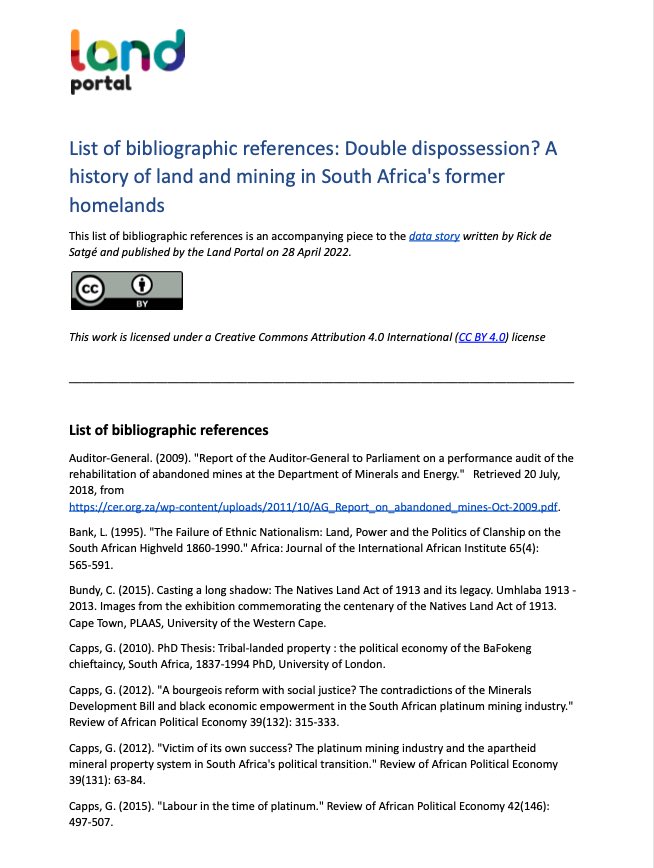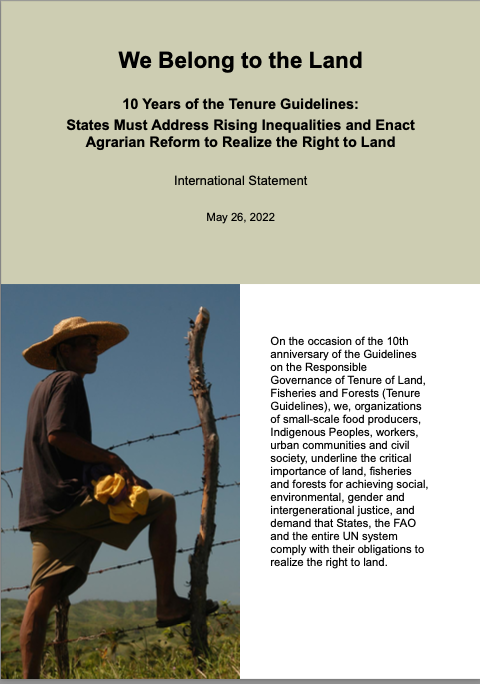List of bibliographic references: Double dispossession? A history of land and mining in South Africa's former homelands
This list of bibliographic references is an accompanying piece to the data story written by Rick de Satgé and published by the Land Portal on 28 April 2022.





